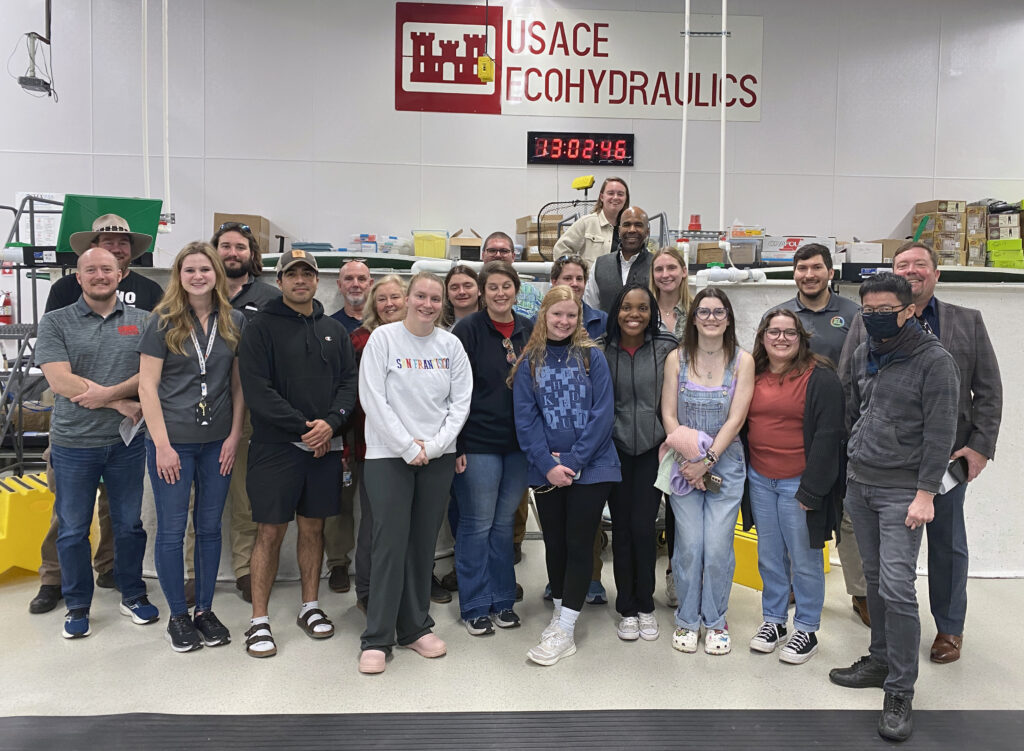
Story: Lisa Sollie
The University of West Alabama has entered a new partnership agreement with the United States Army Engineer Research and Development Center (ERDC) designed to encourage and enhance study in the scientific disciplines of science, technology, engineering, and mathematics (STEM).
Headquartered in Vicksburg, Mississippi, the U.S. Army Engineer Research and Development Center operates seven unique laboratories in four states that help solve the nation’s most challenging problems in civil and military engineering, geospatial sciences, water resources and environmental sciences. As one of the most diverse engineering and scientific research organizations in the world with an annual research program exceeding $1 billion, ERDC scientists, engineers, technicians, and administrative and support personnel develop far-reaching technologies and innovative solutions in support of the Soldiers, military installations, and the Corps of Engineers’ civil works mission, as well as for other federal agencies, state and municipal authorities, and with U.S. industries through innovative work agreements.
Dr. Kevin Morse, associate professor of biological sciences at UWA, believes the ERDC is the ideal partner for UWA’s College of Natural Sciences & Mathematics (NSM), noting grants externally fund the center’s research projects.
“That’s great for us,” Morse said, “because the ERDC purchases equipment dependent upon the needs of a particular project, which may or may not continue based on initial findings.” Morse further explained that the ERDC could transfer surplus equipment or loan equipment to the University for a specified time under the signed partnership agreement.
How the partnership came about
According to Morse, the partnership developed when a graduate student from Brandon, Mississippi, expressed an interest in UWA’s master of science degree in conservation biology and wanted to do a thesis but take her classes online. At that time, students who wanted to do a thesis had to do their research in person at the University,” he explained, “but we didn’t want to tell her no without exploring all the options.”
Morse learned that the interested student worked at the ERDC, and if her supervisor agreed, she could do her thesis research at the facility or come to campus when needed. “When I found out the student’s supervisor was Chris Griggs, senior research physical scientist at the ERDC and a 1995 alumnus, I was confident we could accommodate her request.” Conversations with Griggs and other ERDC personnel eventually led to the current partnership agreement.
What the future holds
A visit to the U.S. Army Engineer Research and Development Center in Vicksburg allowed UWA students and faculty to “envision the extensive possibilities for collaboration with the center,” noted Dr. Jeffery Merida, dean of UWA’s College of Natural Sciences and Mathematics. Because of the vast resources at the ERDC, which include one of the world’s most powerful beam centrifuges and houses the Coastal and Hydraulics Laboratory, Environmental Laboratory, Geotechnical and Structures Laboratory, and the Information Technology Laboratory, “the possibilities are truly limitless,” he said.
Moving forward, Morse stated that UWA students will have an inside track to summer internships, primarily for undergraduates, “but graduate students might also be able to do internships that could lead to job opportunities.” He also noted that faculty and students can utilize any active equipment at the center that the University doesn’t have, providing an invaluable research opportunity for both parties. “We also hope ERDC personnel will come to campus to teach or guest lecture,” added Morse. “I’m just eager to see where we go from here.”